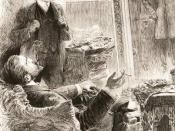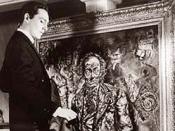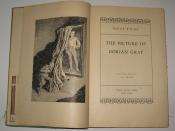"The quality or state of being vain; want of substance to satisfy desire; emptiness; unsubstantialness; unrealness; falsity", is the definition of vanity according to Webster's revised unabridged dictionary. Vanity destroys lives. In the novels "Frankenstein" by Mary Shelley, "The Mayor of Casterbridge" by Thomas Hardy, and "The Picture of Dorian Gray" by Oscar Wilde, one can see the way vanity destroys the lives of a character.
In Frankenstein, Victor Frankenstein desires to be a creature in essence to be "God". His "want of substance" leads him to create a monster. After creating the monster Frankenstein abandons him. The monster is then left with an emptiness for want of brotherhood and love which leads to the death of the people Frankenstein love the most. "[He] beheld those [he] loved spend vain sorrow upon the graves of William and Justine, the first hapless victims to [his] unhallowed arts."(73)
Vanity is in Thomas Hardy's The Mayor of Casterbridge, determining the actions of Michael Henchard. Henchard vanity leads him to make decision and constantly dwell on his past. Henchard wants to do the "right" thing that will let him keep his good name to the point of going into competition with Farfare. Henchard gives up any hope of being happy because he is to vain to let other people know his mistakes and to live in the present rather than in the past he cannot change.
The Picture of Dorian Gray is the most prominent example of vanity destroying life. Gray's wish for eternal youth leads him to a life of sin and treachery. His worship of youth and the beauty of youth allows him to feel little to know regret over misdeeds. His vanity over his looks eventually destroys him.
Vanity can and will destroy lives. In Frankenstein,


